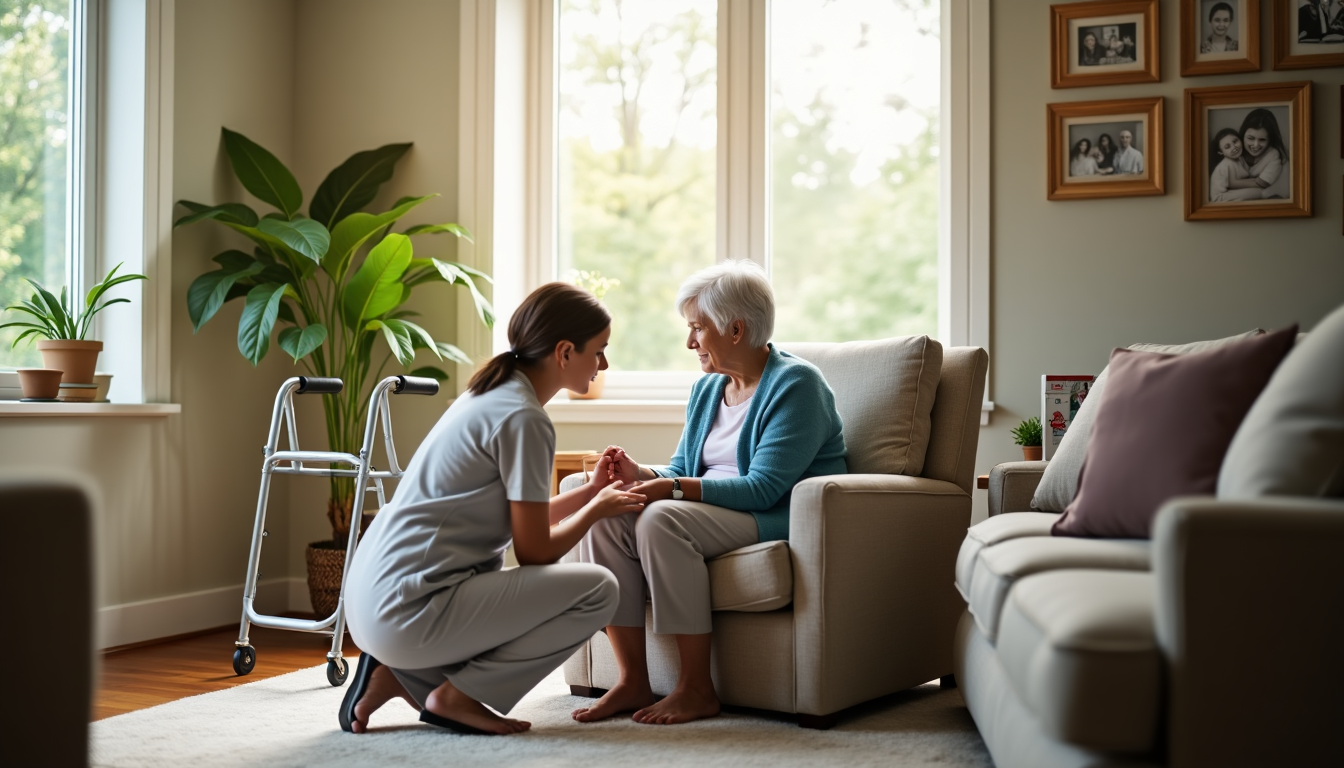Ring in Care: Daily check-in calls for seniors and loved ones
Get StartedDepression and Caregiver Blues
Caregiving can be a lonely task. Day after day spent caring for another person can lead to feelings of isolation and exclusion. With no one else to talk to, no one to appreciate the small sacrifices you make on a daily basis, it’s no wonder that depression is very common among caregivers.
If you are experiencing feelings of extreme sadness, relentless waves of self-criticism, apathy and hopelessness, changes in eating or sleeping habits, trouble concentrating you may be suffering from depression, a serious physical illness.
Everyone feels sad or melancholy at times. It is perfectly normal for some days to be better than others. Brought on by stress, fatigue or boredom, mild depressive symptoms linger for short periods and generally cause no harm. However, ordinary depressed feelings are very different from clinical depression, which is much more serious.
Can depression in women be triggered by the hormonal changes that accompany menopause? Researchers are investigating this possibility.
We do know that many women experience troubling emotional symptoms such as increased irritability during perimenopause, but those feelings may be caused by a lack of sleep rather than hormonal changes.
Treatment of Depression
The first step in dealing with depression is to recognize your own symptoms and seek treatment. Talk with your primary care clinician or obstetrician/gynecologist.
He or she can assess the symptoms of depression, initiate your treatment, and refer you to a qualified psychiatrist or psychologist for additional treatment, as necessary.
Most women are successfully treated for depression on an outpatient basis using psychotherapy, medication or some combination of the two.
Alternative therapies, shown to be effective in properly selected cases, include an over-the-counter herbal remedy called St. John’s Wort and exercise. The best therapy for you should be discussed with your clinician.
As with many types of diseases, depressive disorders come in many forms. These are the most prevalent types:
- Major or Clinical Depression — The most common form of depressive illness is characterized by a combination of symptoms that interfere with the activities of daily living (working, sleeping, eating and pleasurable activities).Symptoms generally persist for at least two weeks, and episodes can occur once or recur multiple times at various stages of a woman’s life.Usually four or more of the following symptoms must be present:
- Persistent sad, anxious or “empty” mood
- Feelings of hopelessness, pessimism
- Feelings of guilt, worthlessness, helplessness
- Loss of interest or pleasure in hobbies or activities you once enjoyed, including sex
- Insomnia, early morning waking, or oversleeping
- Loss of weight, loss of appetite, or overeating and weight gain
- Decreased energy, fatigue, feeling “slowed down”
- Thoughts of death or suicide, suicide attempts
- Restlessness, irritability
- Difficulty concentrating, remembering, making decisions
- Persistent physical symptoms that do not respond to treatment, such as headaches, digestive disorders, and chronic pain
- Dysthymia — A less severe type of depression, dysthymia involves long-term, chronic symptoms that do not disable, but keep you from feeling good, or functioning at your best.
- Manic-Depressive Illness — Also called bipolar disorder, this condition is not nearly as prevalent as other forms of depressive illnesses. Manic-depressive illness involves cycles of depression and elation, during which a sufferer will alternate between extreme periods of debilitating depression and hyperactive creativity and energy. There is most likely a genetic influence in the development of this disease.
- Sub-clinical Depression — Also called “sub-syndromal symptomatic depression,” this condition is defined by two or more symptoms of depression, most or all of the time, for at least two weeks in duration. It is also associated with evidence of social dysfunction.
- Seasonal Affective Disorder (SAD) — A mood disorder that is four times more common in women than men, and characterized by depression related to a certain season of the year, especially winter. The decreased amount of sunlight during the winter is believed to be a cause of this disorder, which is often treated with light therapy.












